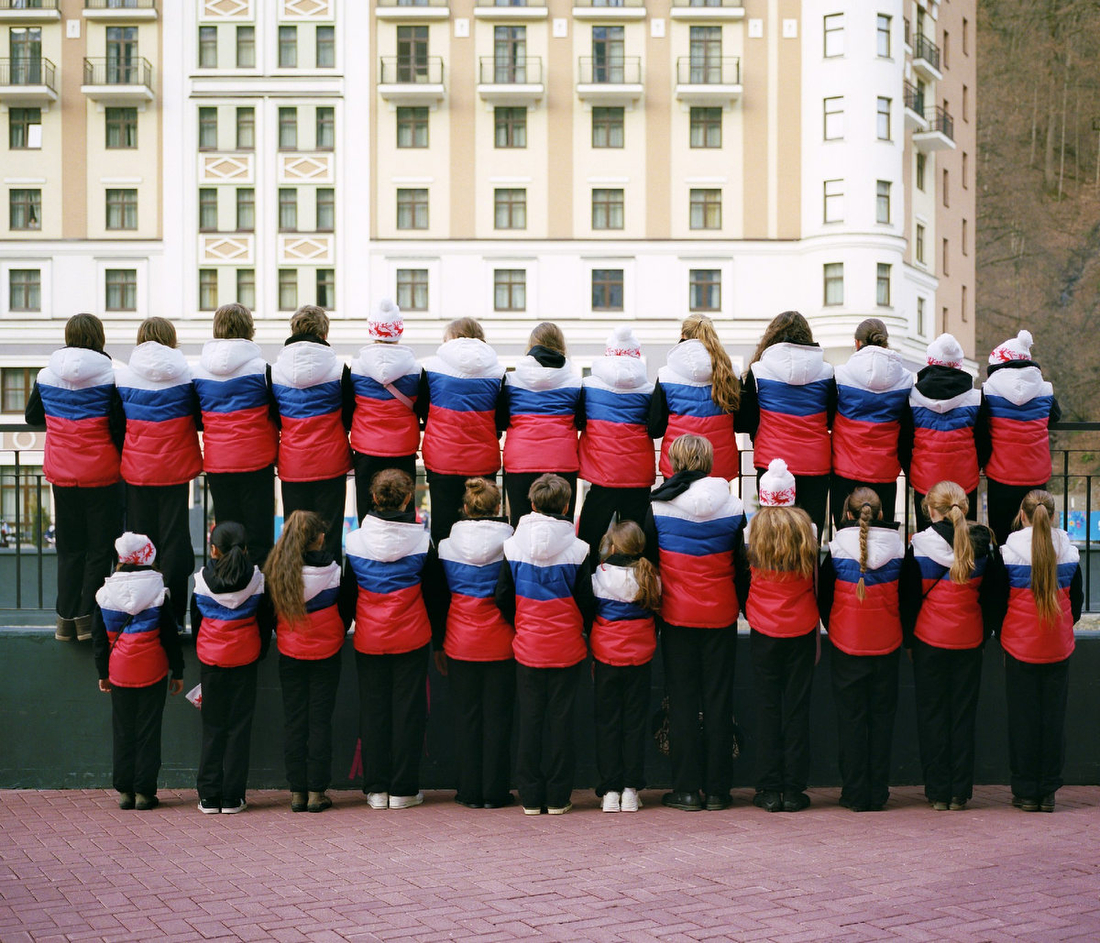People - 3RD PLACE WINNER: Julia Abzaltdinova
Photo © Julia Abzaltdinova
Julia Abzaltdinova
The big game
Support this photographer - share this work on Facebook.
National self-identification is a thorny issue today in Russia. Millions of people talk about the sense of belonging to their own country trying to get united into "imagined communities". These communities may have three different mythological images of modern Russia. The first one is the image of the Soviet Union. Its myth is about the golden age of the country existence where modern Russia is a stump of the USSR. The second image is the Russian Empire. Russians connect it with the hope to "recover the historical continuity" and over ethnic superiority that appeals to pure blood. The third image brings us back to the roots, based on the fact that Russian ethnicities are ancient and unique. Thus, the state policy is supposed to facilitate the citizens get answers to the questions: "Who we are?" "Where are we from?" "Where are we heading to?", as well as to explain the historical and actual sense of the country existence. Even excitement and competitive spirit of an athlete at the Olympics fades away when he has no image of his own country.
Within the global crisis, the Winter Olympics in Russia and the transformed city of Sochi could become a symbol of new ideology for an emerging democratic state. But there were no new tokens of Russian statehood found. The mixture of easily identified realities appeared in front of my lens. It seems that the image of the country was formed by soviet past and modern television.
Probably the only one common element was the proverbial Russian tricolor. Soviet symbolic signs and pseudo-Russian traditional shirts "kosovototki" mixed with glamor colorful brand sports apparel. All this makes me smile unintentionally. But this is just a vivid proof that modern Russia is still far from the West as well as from the East, and just goes its own way.
About author:
Julia Abzaltdinova, born 1984, lives and works in Moscow, Russia.
Julia's main themes are national identity representation and traces of human influence on the natural landscape. Studying at the Rodchenko Moscow School of Photography and Multimedia, Julia began her first project “The Big Game” (2010-2016) - a six-year visual study. In this project, the territory of Greater Sochi (Russia) is shown as a space of global changes during the preparation for the XXII Olympic Winter Games. Delving deeper into the topic, Julia touches such problems as mythology of place and time, quasi-patriotism, archeology of modern society and traces of human activity. “The Big Game” has been exhibited in 7 Russian cities (2017-2018) including the prominent festival of modern photography Presence (St. Petersburg, 2017) and the Baltic Biennial of the photo (Kaliningrad, 2017). Expanding on the theme of national identity representation, Julia proceeded to the problems of self-identification of a modern office person in her project “Chad” (2018). Also, in the project “Invisible life of plants” (2014) Julia observes the biotic and abiotic factors in the formation of urban life in Krasnoyarsk, delving into the theme of traces of human influence on the natural landscape.
Although primarily based in Moscow, Julia also works in Sochi and the Urals.

